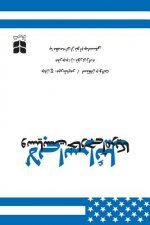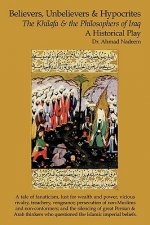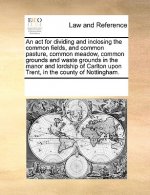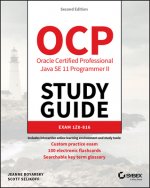
Kód: 08243050
Relationships Between Political Development and Intervention
Autor David T London
The Democratic Republic of the Congo (the Congo) received its independence from Belgium on 30 June 1960. The Congo's political development from the 1700s to 1960 resulted in a democratically elected Congolese administration that a ... celý popis
- Jazyk:
 Angličtina
Angličtina - Vazba: Brožovaná
- Počet stran: 54
Nakladatelství: Biblioscholar, 2012
- Více informací o knize

Mohlo by se vám také líbit
-

Velocity Plume Profiles for Hall Thrusters Using Laser Diagnostics
1646 Kč -

Free to Dream
474 Kč -

Israel Lobby and U. S. Foreign Policy
710 Kč -

Seven Things That God Hates & Seven Letters to Seven Churches
621 Kč -

Abe Lincoln for Class President
277 Kč -

Long Road Home...
700 Kč -

Believers, Unbelievers, and Hypocrites
621 Kč -

Ballads and Other Poems
399 Kč -

My Life is an Open Book
490 Kč -

Nassau Incident
808 Kč -

Voyage de Humboldt Et Bonpland. Personal Narrative of Travels to the Equinoctial Regions of the New Continent During the Years 1799-1824 Translated In
1059 Kč -

Ode for an Entertainment of Musick on Her Majesty's Birth-Day, and the Success of Her Majesty's Arms by Sea and Land. the Night Performance Before Her
384 Kč -

Bolt and Win
785 Kč -

ACT for Dividing and Inclosing the Common Fields, and Common Pasture, Common Meadow, Common Grounds and Waste Grounds in the Manor and Lordship of Car
449 Kč
Dárkový poukaz: Radost zaručena
- Darujte poukaz v libovolné hodnotě a my se postaráme o zbytek.
- Poukaz se vztahuje na celou naši nabídku.
- Elektronický poukaz vytisknete z e-mailu a můžete ihned darovat.
- Platnost poukazu je 12 měsíců od data vystavení.
Více informací o knize Relationships Between Political Development and Intervention
Nákupem získáte 165 bodů
 Anotace knihy
Anotace knihy
The Democratic Republic of the Congo (the Congo) received its independence from Belgium on 30 June 1960. The Congo's political development from the 1700s to 1960 resulted in a democratically elected Congolese administration that at the time of independence was unable to operate the national government or the economy. As a result, the Congo became a failing state within days of gaining independence. Beginning with King Leopold II's reign over the Congo in 1885 and continuing under the administrations of President Joseph Mobutu, President Laurent Kabila, and President Joseph Kabila, successive Congolese administrations employed four governing practices that undermined the country's stability. Congolese administrations relied upon foreign political support to retain power. They used private international companies to fulfill many security and economic functions. They manipulated ethnic differences within their populations to maintain control, and they used the state's resources to increase their own personal wealth and power at the expense of the Congo's larger social well being. These governing practices have both helped and thwarted international interventions into the Congo since 1960. Between 1960 and 2005, the United Nations, the international community, and various African states launched interventions into the Congo. The intervening entities used a combination of military, political, and economic means to stabilize the Congo. The interventions varied in their use of opportunities made available by the Congo's state of political development. Examples of such opportunities included the widespread public support for democratic rule, the presence of a democratically elected administration, and the Congo's dependence on foreign aid. Most of the interventions ignored existing opportunities to improve the stability of the Congo's government and instead pursued the national interests of the intervening entities, often to the detriment of the larger Congolese population
 Parametry knihy
Parametry knihy
Zařazení knihy Knihy v angličtině Society & social sciences Education
1646 Kč
- Plný název: Relationships Between Political Development and Intervention
- Autor: David T London
- Jazyk:
 Angličtina
Angličtina - Vazba: Brožovaná
- Počet stran: 54
- EAN: 9781288313150
- ISBN: 9781288313150
- ID: 08243050
- Nakladatelství: Biblioscholar
- Hmotnost: 113 g
- Rozměry: 246 × 189 × 3 mm
- Datum vydání: 19. November 2012
Oblíbené z jiného soudku
-

Oxford IB Diploma Programme: IB Economics Course Book
1607 Kč -

OET Preparation
246 Kč -

Cambridge IGCSE (R) & O Level Complete Physics: Student Book Fourth Edition
929 Kč -

Business Partner B2 Workbook
462 Kč -

Business Partner B1 Workbook
435 Kč -

Imagine If...
306 Kč -

OET Reading Subtest Preparation
346 Kč -

Vol 2 Blackletter Lettering Adventures
640 Kč -

AS & A Level Maths For Dummies
462 Kč -

CompTIA Security+ Review Guide - Exam SY0-601
629 Kč -

Hanbo Jutsu: Use of Hanbo, Cane and Walking Stick for Self Defense
285 Kč -

Amazing Autistic Brain Cards
1000 Kč -

Embodied Teen
548 Kč -

Blue Book of Grammar and Punctuation: An Easy- to-Use Guide with Clear Rules, Real-World Examples , and Reproducible Quizzes, Twelfth Edition
393 Kč -

Positive Discipline Tools for Teachers
433 Kč -

Oxford IB Diploma Programme: IB Theory of Knowledge Course Book
1466 Kč -

Oxford IB Study Guides: Economics for the IB Diploma
1120 Kč -

Speed and Accuracy: Division
211 Kč -

GCSE Spanish Exam Practice Workbook (includes Answers & Free Online Audio)
220 Kč -

KS3 Maths 10-Minute Weekly Workouts - Year 7
199 Kč -

Vertical Academy
922 Kč -

Grade 9-1 GCSE Maths AQA Revision Question Cards - Higher
241 Kč -

Human Landscapes from My Country
656 Kč -

Cambridge IGCSE (R) & O Level Complete Chemistry: Student Book Fourth Edition
992 Kč -

Oxford IB Diploma Programme: IB Course Preparation Mathematics Student Book
992 Kč -

1000 TRIOS or gapped sentences for Cambridge Advanced and Proficiency Exams
611 Kč -

Business Partner B1+ Workbook
462 Kč -

(ISC) SSCP SG & SSCP Practice Test Kit, 3e
1745 Kč -

Einkorn
523 Kč -

Czech Verbs
954 Kč -

Motivation and Reinforcement
1164 Kč -

Pearson Edexcel International GCSE (9-1) English Language B Student Book
1328 Kč -

Read Write Inc. Phonics: Red Ditty Book Bag Books (Mixed Pack of 10)
1585 Kč -

Oxford International Primary Maths Second Edition: Practice Book 1
323 Kč -

Forensic Linguistics Articles
417 Kč -

Corrected Squares of The Book of Abramelin
14513 Kč -

Exam Prep for Microeconomics by Pindyck & Rubinfeld, 6th Ed.
1089 Kč -

KS3 Maths 10-Minute Weekly Workouts - Year 8
199 Kč -

Reading Mind - A Cognitive Approach to Understanding How the Mind Reads
571 Kč -

Ganzheitliche Sprachförderung
807 Kč -

Internet Protocol over Link-16
1646 Kč -

Effect of Registration Errors on Tracking in a Networked Radar System
1646 Kč -

Princeton Review SAT Premium Prep, 2021
1141 Kč -

CEH v11 Certified Ethical Hacker Study Guide + Practice Tests Set
1872 Kč -

10 Practice Tests for the SAT, 2021 Edition
846 Kč -

OCP Oracle Certified Professional Java SE 11 Programmer II Study Guide - Exam 1Z0-816 and Exam 1Z0-817
1336 Kč -

Prepared
891 Kč -

Powerful Teaching: Unleash the Science of Learning
665 Kč -

Physics for You
1249 Kč
Osobní odběr Praha, Brno a 12903 dalších
Copyright ©2008-24 nejlevnejsi-knihy.cz Všechna práva vyhrazenaSoukromíCookies



 Vrácení do měsíce
Vrácení do měsíce 571 999 099 (8-15.30h)
571 999 099 (8-15.30h)